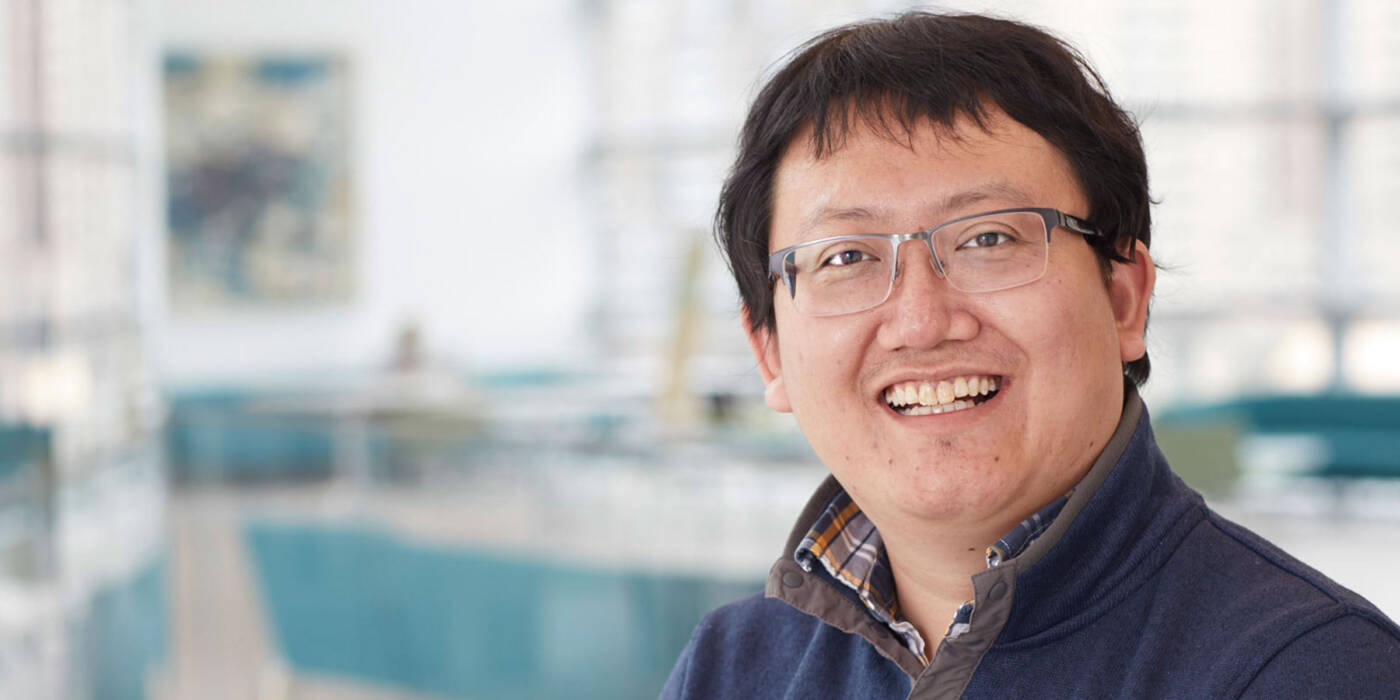Junyue Cao, Ph.D.
Fisher Center Foundation Assistant Professor
Development and function of mammalian tissues and organs depends on the behaviors and dynamics of individual cells. The Cao lab investigates how a cell population in a mammalian body maintains homeostasis and how it is disrupted in aging and aging-related disorders, such as Alzheimer's disease and cancer, by developing genomic techniques to profile and perturb cell dynamics at single-cell resolution.
Individual cells are the fundamental unit of form and function in biological systems. A delicately balanced program of cell proliferation, differentiation, and apoptosis ensures that tissues and organs can maintain a stable size and function throughout life. Disruptions in this homeostasis can lead to aging-related disorders, such as neurodegenerative diseases and cancer.
The Cao lab is dedicated to characterizing various aspects of single-cell biology, aiming to understand how complex cell populations maintain homeostasis in entire mammalian organisms and how this balance is disrupted in aging and aging-related diseases. To achieve this, his group develops techniques for comprehensive profiling of cell state changes over time in vivo and studies how cells shape and are shaped by their environments.
The first focus of Cao lab is developing exponentially scalable technologies to profile cellular dynamics and associated genomic features at a single-cell resolution. One such technology, EasySci, enables routine scanning of gene expression and chromatin accessibility profiles from millions of single cells. Applying this to human and mouse brains, his group has gained insights into gene regulation and cell population dynamics in aging and Alzheimer’s disease. Another tool, TrackerSci, profiles gene expression and epigenome changes affecting progenitor cell proliferation and differentiation dynamics in vivo. This technique quantifies aging and Alzheimer’s disease-associated shifts in cell-type-specific dynamics, deciphering associated molecular programs.
Although current single-cell genomic techniques offer comprehensive profiling of cell states, strategies for manipulating cell states and population dynamics in vivo are still lacking. Another goal of Cao’s lab is to develop methods for cell type-specific manipulation in order to investigate the rules governing cellular functions and cell population homeostasis in vivo. One of these tools, PerturbSci-Kinetics, captures single-cell transcriptional dynamics in response to pooled CRISPR screens targeting various biological processes. This high-throughput technique characterizes elements that govern cell-type-specific gene regulation during RNA synthesis, processing, and degradation. This enables systematic decoding of the genome-wide regulatory network underlying cell-type-specific molecular homeostasis at scale. Additionally, his lab focuses on identifying cell-type-specific regulatory modules, such as combinations of enhancers and promoters that direct gene expression in a cell-type-specific manner. They aim to leverage this knowledge to develop tools that enhance cell population robustness or restore cell population homeostasis in aging and aging-related diseases such as Alzheimer’s disease and cancer.
Cao is a faculty member in the David Rockefeller Graduate Program, the Tri-Institutional M.D.-Ph.D. Program, and the Tri-Institutional Ph.D. Program in Computational Biology and Medicine.
